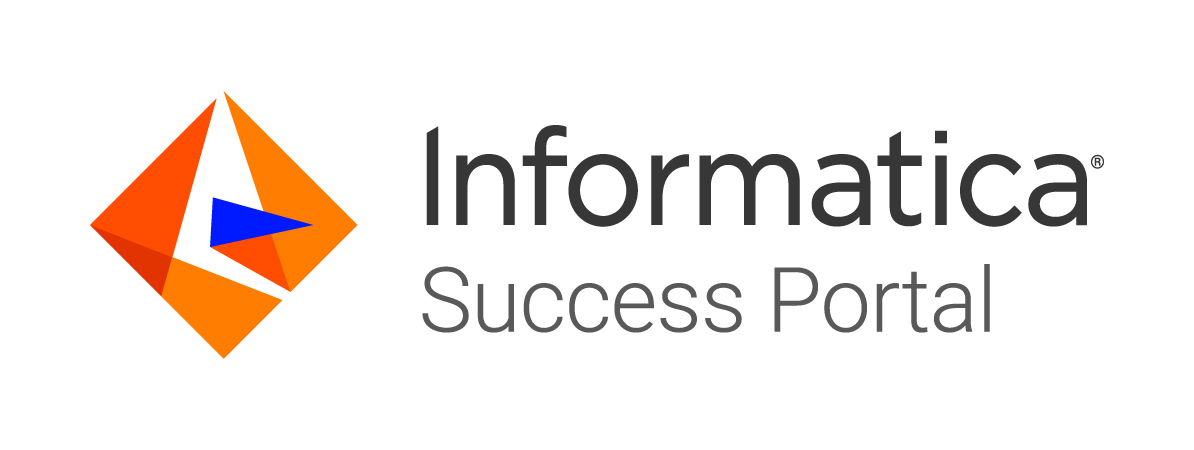-
Success
Manage your Success Plans and Engagements, gain key insights into your implementation journey, and collaborate with your CSMsSuccessAccelerate your Purchase to Value engaging with Informatica Architects for Customer SuccessAll your Engagements at one place
-
Communities
A collaborative platform to connect and grow with like-minded Informaticans across the globeCommunitiesConnect and collaborate with Informatica experts and championsHave a question? Start a Discussion and get immediate answers you are looking forCustomer-organized groups that meet online and in-person. Join today to network, share ideas, and get tips on how to get the most out of Informatica
-
Knowledge Center
Troubleshooting documents, product guides, how to videos, best practices, and moreKnowledge CenterOne-stop self-service portal for solutions, FAQs, Whitepapers, How Tos, Videos, and moreVideo channel for step-by-step instructions to use our products, best practices, troubleshooting tips, and much moreInformation library of the latest product documentsBest practices and use cases from the Implementation team
-
Learn
Rich resources to help you leverage full capabilities of our productsLearnRole-based training programs for the best ROIGet certified on Informatica products. Free, Foundation, or ProfessionalFree and unlimited modules based on your expertise level and journeySelf-guided, intuitive experience platform for outcome-focused product capabilities and use cases
-
Resources
Library of content to help you leverage the best of Informatica productsResourcesMost popular webinars on product architecture, best practices, and moreProduct Availability Matrix statements of Informatica productsMonthly support newsletterInformatica Support Guide and Statements, Quick Start Guides, and Cloud Product Description ScheduleEnd of Life statements of Informatica products
- Velocity
- Strategy
-
Solutions
-
Stages
Following a rigorous methodology is key to delivering customer satisfaction and expanding analytics use cases across the business.

-
More
-
Success
Manage your Success Plans and Engagements, gain key insights into your implementation journey, and collaborate with your CSMsAccelerate your Purchase to Value engaging with Informatica Architects for Customer SuccessAll your Engagements at one place
-
Communities
A collaborative platform to connect and grow with like-minded Informaticans across the globeConnect and collaborate with Informatica experts and championsHave a question? Start a Discussion and get immediate answers you are looking forCustomer-organized groups that meet online and in-person. Join today to network, share ideas, and get tips on how to get the most out of Informatica
-
Knowledge Center
Troubleshooting documents, product guides, how to videos, best practices, and moreOne-stop self-service portal for solutions, FAQs, Whitepapers, How Tos, Videos, and moreVideo channel for step-by-step instructions to use our products, best practices, troubleshooting tips, and much moreInformation library of the latest product documentsBest practices and use cases from the Implementation team
-
Learn
Rich resources to help you leverage full capabilities of our productsRole-based training programs for the best ROIGet certified on Informatica products. Free, Foundation, or ProfessionalFree and unlimited modules based on your expertise level and journeySelf-guided, intuitive experience platform for outcome-focused product capabilities and use cases
-
Resources
Library of content to help you leverage the best of Informatica productsMost popular webinars on product architecture, best practices, and moreProduct Availability Matrix statements of Informatica productsMonthly support newsletterInformatica Support Guide and Statements, Quick Start Guides, and Cloud Product Description ScheduleEnd of Life statements of Informatica products
-
Success
Business Analyst
Data Governance & Privacy
The primary role of the Business Analyst (sometimes known as the Functional Analyst) is to represent the interests of the business throughout the solution design and development process. The secondary role is to function as an interpreter for business and technical staff, translating concepts and terminology and generally bridging gaps in understanding.
Under normal circumstances, someone from the business community fills this role, since deep knowledge of the business requirement is indispensable. Ideally, familiarity with the technology and the development lifecycle allows the individual to function as the communications channel between technical and business users.
Responsibilities
- Ensures that the delivered solution fulfills the needs of the business and should be involved in decisions related to the business and functional requirements.
- Collects or defines end-user requirements.
- Assists in determining the solution project scope, time and required resources.
- Provides support and analysis of data collection, mapping, aggregation and balancing functions.
- Analyzes profiling results, reference data sets and data quality scorecards.
- Assists in resolving data exceptions.
- Performs requirements analysis, documentation, testing, ad-hoc reporting, user support and project leadership.
- Produces detailed business process flows, functional requirements specifications and data models and communicates these requirements to the design and build teams.
- Conducts cost/benefit assessments of the functionality requested by end-users.
- Prioritizes and balances competing priorities.
- Plans and authors the user documentation set.
- Assists in the identification and definition of business terms and entities to be covered in the business glossary.
Qualifications/Certifications
- Possesses excellent communication skills, both written and verbal.
- Ability to work effectively with both business and technical stakeholders.
- Works independently with minimal supervision.
- Has knowledge of the tools and technologies used in the solution.
- Holds a certification in industry vertical knowledge (if applicable).
- Possesses expert knowledge of the business areas impacted by the project
